All right. i've done some more research, and I just got the 2 way mirror in the mail today. Let me talk about that first.
2 Way Mirror
This thing is actually really cool. I've only ever seen it in the rare supermarket store until now.
- As expected,
- I can use the 2 way mirror to also dim the outside world.
- It's actually an ideall amount of dimming and it means that I can just get the standard, clear PLDC film. From the outside, it'll look like the visor went from a mirror finish to a block of snow or something I'd imagine. This fits in with the white main colour scheme seen in the majority of my projects.
- Because of the reflective layer, I can't see any ghosting (double image) at all
- I can use the 2 way mirror to also dim the outside world.
- A nice suprise
- I'd say that the percieved brightness from the reflection is like 85% or 90% of the source light.
The 1440x1440 Quad
The reflectance leads well into my next point, which is the computational issue I'm having with image stitching and enough light reaching the eye.
My google search generally suggests that a screen in a cinema is 50 nits of brightness. Now, that's in a completely dark room and you can't see behind the screen, so it's not like the screen light needs to battle against ambient. The PLDC film, 2 way mirror film and the head cap design should help the displays power over the ambient light from outside, but I'm thinking that another 90x requirement should be "90 nits to eye brightness".
Now that I've seen the mirror, it sounds like [90 at eye] <- [100 after beam splitter] <-[200 before beamsplitter] is the minimum without significant light losses.
Non polarised beam splitters have significant light losses. The final beam splitter doesn't count, as the light is being used by the other eye, but beamsplitters where the light gets reflected into the abyss is a waste. The reason why I'm talking about beamsplitters is because that's one of a few ways I can stitch the 4 panels together. I'll get to that in a moment.
Team CuttingEdge
It took quite a while to find out what this is called, but what I'm desiring is a knife-edged mirror prism:
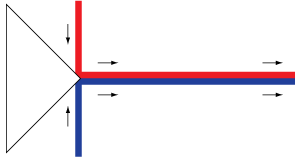 I'm wondering if there's some kind of mirrored cube that does this for cheaper, but this prism is £107 each from a site called ThorLabs. There's also slightly cheaper "pickoff" mirrors from Edmund (£62) that could also be used for a solution.
I'm wondering if there's some kind of mirrored cube that does this for cheaper, but this prism is £107 each from a site called ThorLabs. There's also slightly cheaper "pickoff" mirrors from Edmund (£62) that could also be used for a solution.Team Prism
I assume that a Total Internal Reflection (TIR) 90 degree prism from AliExpress doesn't have ultra precision edges, because I could do this:
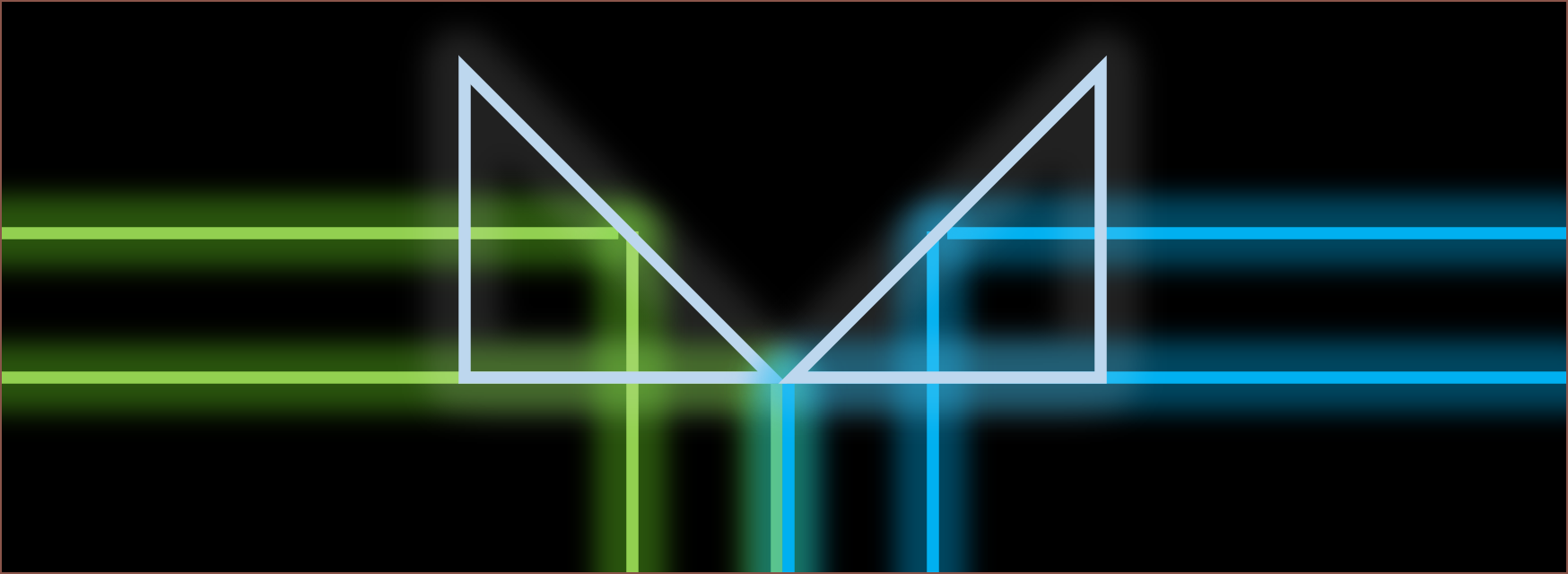 It might be more applicable to offset them so that I only have to get 1 beam at the edge:
It might be more applicable to offset them so that I only have to get 1 beam at the edge: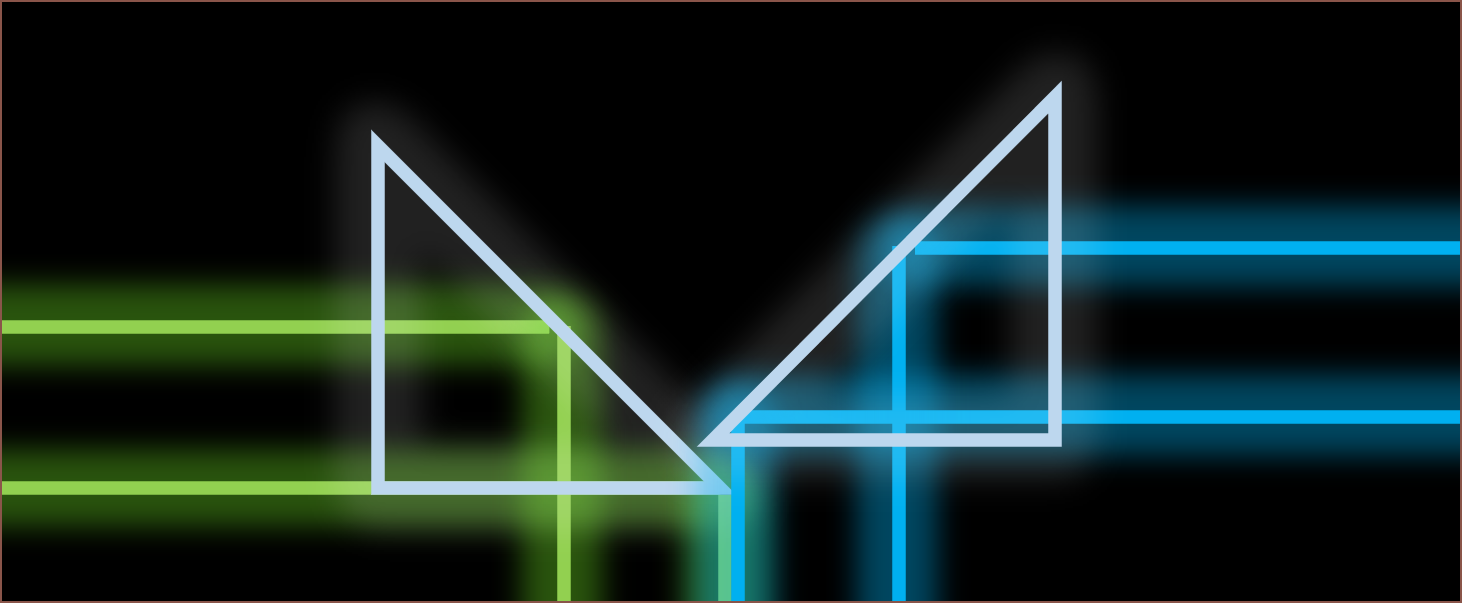 I believe the prisms like the ones seen below would work nicely, but I haven't seen them around AliExpress yet. The bottom one is just 2 seperate prisms of the top one.
I believe the prisms like the ones seen below would work nicely, but I haven't seen them around AliExpress yet. The bottom one is just 2 seperate prisms of the top one.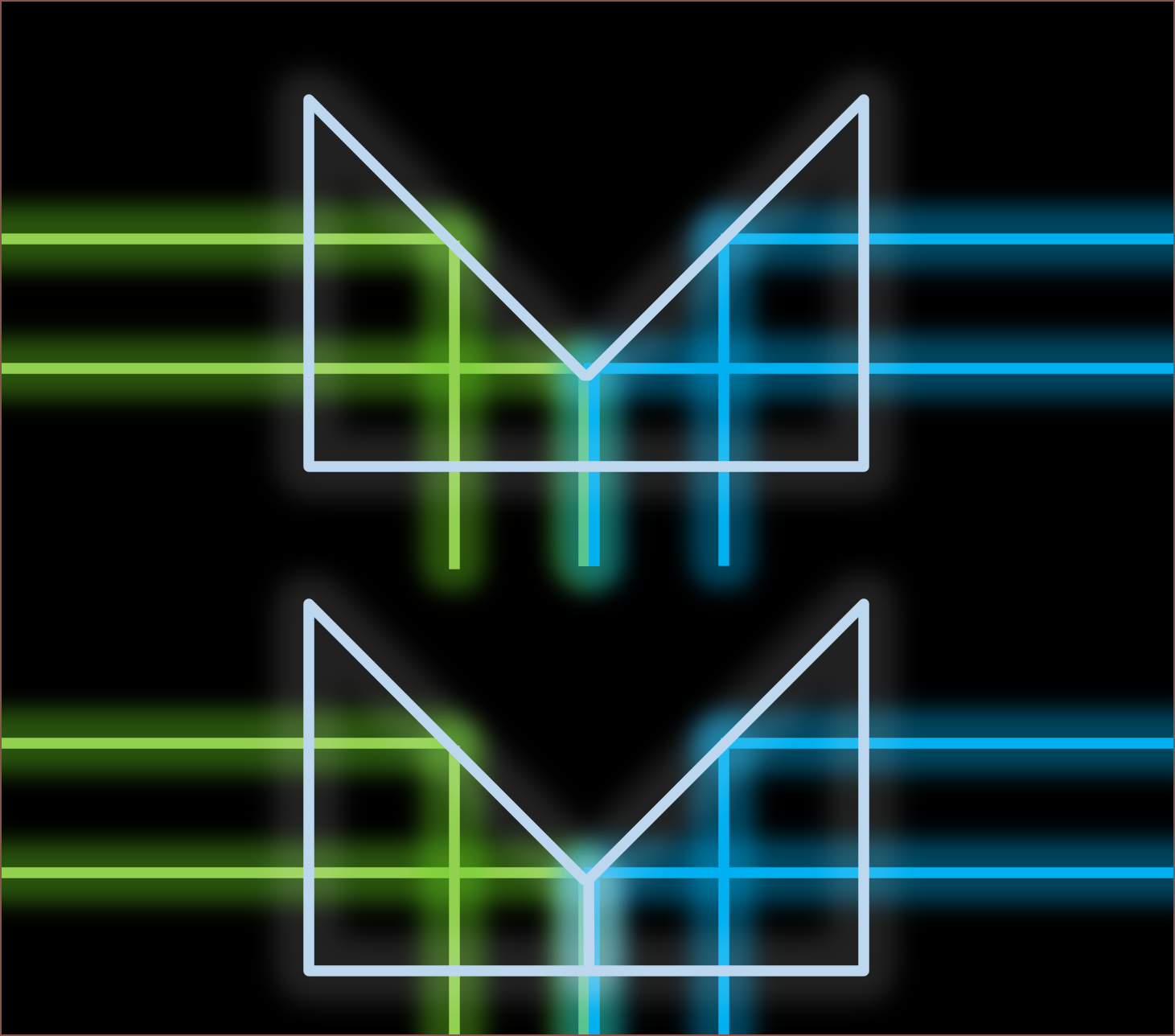
Team Beamsplitter
Now, I forgot up until writing this log that the 1440p screens will be focused to half the XY angle as the other, single screen solutions, which could make this viable. Nits = candela per sq m, and so if I apply a scale factor of 0.5 to the screen and the lumens of the screen stays constant, the candela per sq metre increases 4 fold. In other words, a 300nit screen should become at 1200nit screen if I understand things correctly.
There's 2 versions of the 1440p 120Hz screen: a 150nit, 11% duty panel and a 300nit 100% (assumed) always on panel. Looking at the UFO test with black frame insertion to simulate lower duty displays, the lower the duty % the better. However, the 300nit has 1100:1 contrast instead of 600:1, and it's the one that comes with the 120Hz board so maybe there isnt even a choice in the matter.
I need 2 beamsplitters to merge all 4 screens:
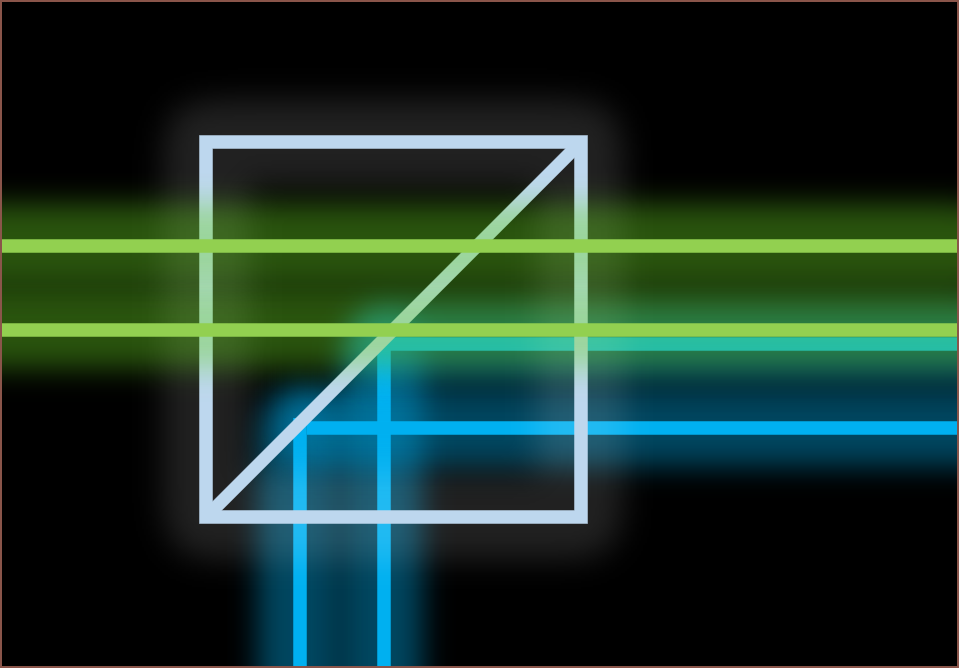 The issue is that with a non polarisation beamsplitter, I lose 50% of the light. Half the blue light goes straight through, and half the green light reflects.
The issue is that with a non polarisation beamsplitter, I lose 50% of the light. Half the blue light goes straight through, and half the green light reflects.Team PolarisationSpinner
Now if I really want to get fancy, I could use a polarising beamsplitter. The question then becomes "How do I rotate the polerisation of the beams 90 degrees?". I haven't yet found anything that I can buy that can do the job, so the solution may have to come from software and mounting 2 of the screens at the required rotation:
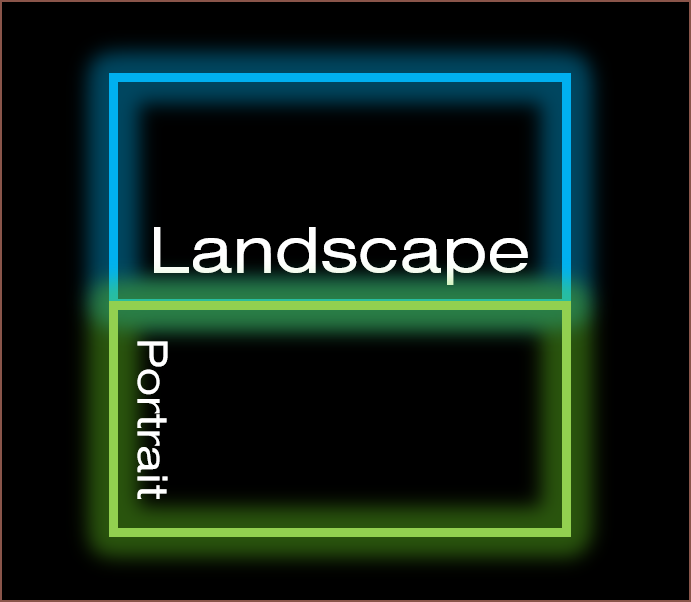 Actually, now that I think about it, Teti would still only see a 2880x1440 monitor for the green section, so I might have to also split the display in software:
Actually, now that I think about it, Teti would still only see a 2880x1440 monitor for the green section, so I might have to also split the display in software: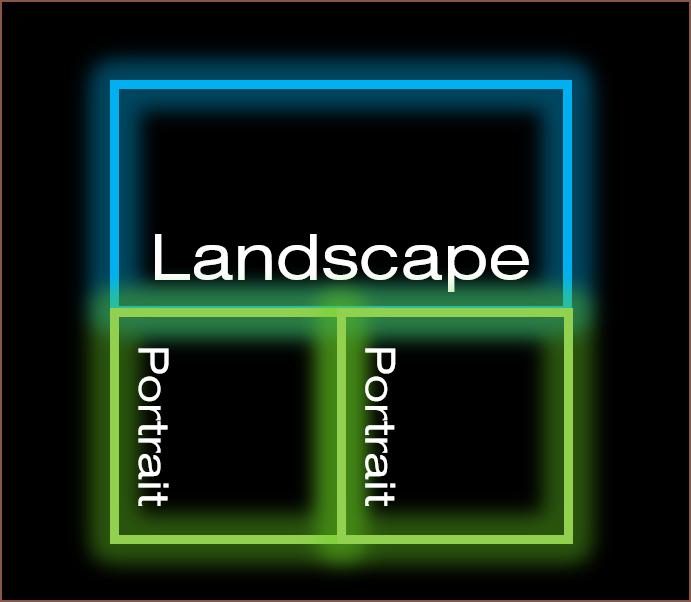 This would only work once though, now that I think about it. A standard beamsplitter would be needed to merge each colour.
This would only work once though, now that I think about it. A standard beamsplitter would be needed to merge each colour.Team Edgecase
I can simply just not strive for an edgeless seam and maybe have some kind of fly-eye-esque, 4 square panel thing. Or it would be the intended idea, but it would look like a standard video wall with virtual + bezel.
The other screens
Testing has shown that anything under 2560px isn't going to be enough pixels to feel like an enjoyable experience. Then, when the FOV is taken into account, it really does seem like 2880 and up is desirable, as 80ppd is as low as I'm willing to go.
The miniLED display driver is still being developed by the Alibaba company, and considering that even with the standard beamsplitter option there should be about 120 nits of preceived brightness, so it seems that I've eliminated all but 1 option.
Next steps
Conviniently enough, I've also finally computed an aesthetic solution for the quad 1440p in the event that I went ahead with the idea. It's loosely inspired by these hexagonal stones, but my design uses squares.
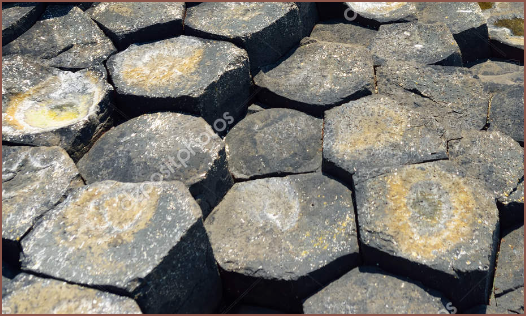
I'll look a bit more to see if there are any prisms like the bottom ones in Team Prism, but I'm also concerned about minimum brightness. I only use the max 600 nits of my smartphone outside under the sun, and there's no plug sockets for #Teti [gd0022] out there. I've never even seen 100% brightness on my 400nit 15.6" display. It might be a waste of optical power unless I can also get some DC dimming on the LED backlights, but the standard beamsplitter sounds like a way to get a certified CanDoTheTaskApp. I can think about CanDoTheTaskBetter some other time.
Then again, I have heard gaming in HDR looks amazing. I don't think I'd have the contrast ratio for it though.
 kelvinA
kelvinA
Discussions
Become a Hackaday.io Member
Create an account to leave a comment. Already have an account? Log In.